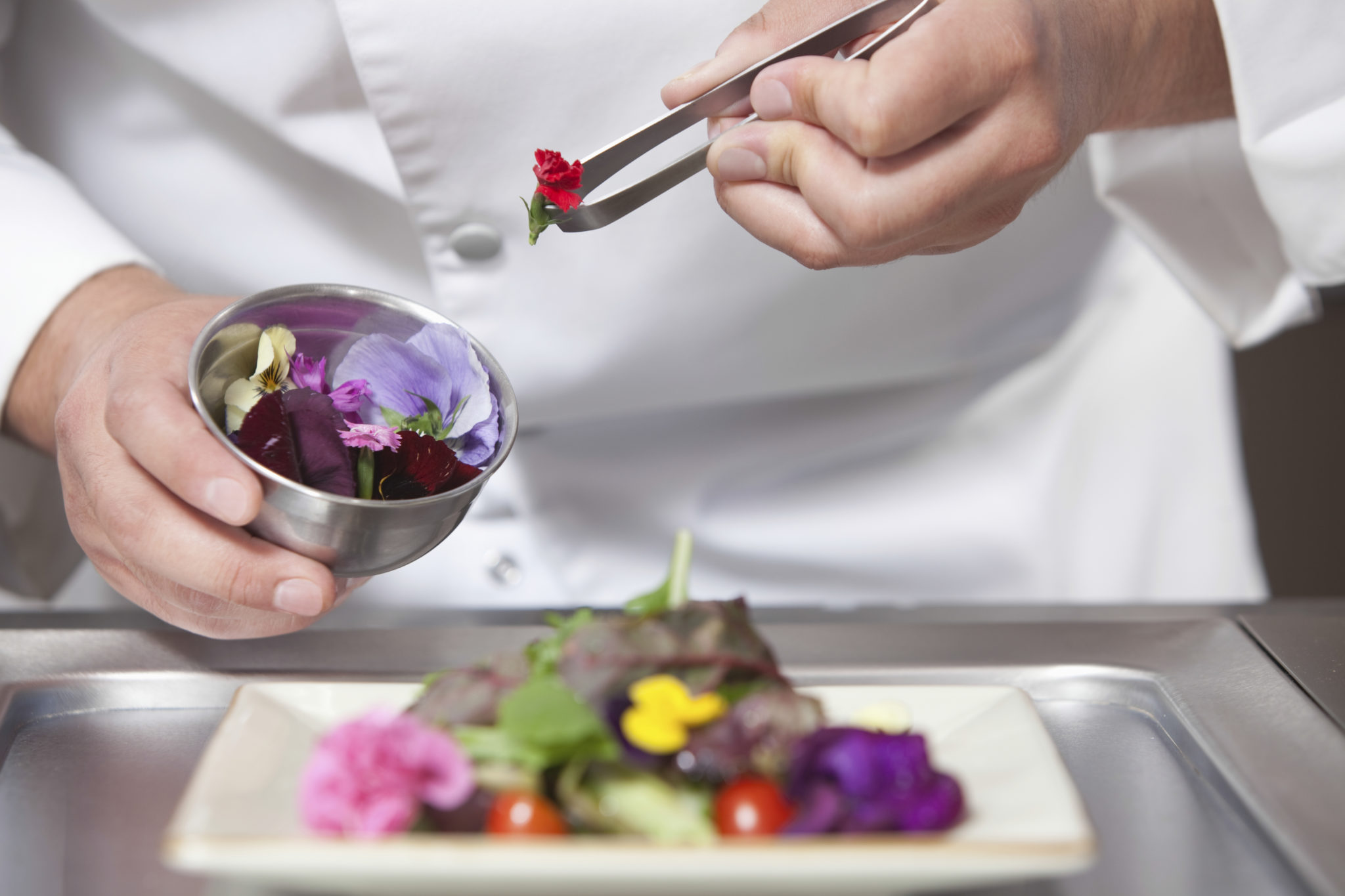There is plenty of great advice out there for young chefs and recent culinary graduates. But one lesson that every up-and-coming cooking master should take to heart is the importance of individuality. If you want to be a successful chef, you have to blaze your own path, to find an identity and approach to cooking that is all your own. That’s how you break new ground and create dishes that are truly one-of-a-kind.
Of course, that’s not to say you can’t take some inspiration from other chefs. Especially when it comes to neat little tips and tricks to streamline your culinary efforts. That way, there’s more time and energy to dedicate to creating your identity. Here are four such handy pointers:
1. Tongs are your best friend
Chefs may utilize different tools for various kitchen tasks. However, as Good Housekeeping magazine pointed out, most professional chefs rely almost exclusively on a good pair of tongs. These tools are pretty versatile, great for removing items from the oven, flipping most sizes of meat, providing stability during slicing, tossing salads and stir fry alike, removing corn from the cob and generally extending a chef’s reach. Just make sure your tongs are up to snuff – you want a pair with a good rubber handle – and you grip them low for the most control possible.

2. Don’t forget the salt
Rowley Leigh was formerly the head chef and proprietor of the London restaurant Le Cafe Anglais. Speaking with the U.K.’s Independent newspaper, he said that the mark of true professional chefs is how much seasoning they use. Amateurs may utilize seasoning, but Leigh explained that it’s often seen as afterthought, something to add flavor when a dish is distinctly lacking. Instead, Leigh said you have to use salt in every step of the cooking process, which brings out the flavors slowly and organically. He also said that he relies quite heavily on lemons, which only increase the capabilities of most seasonings.
3. Be a robot (or close enough)
J. Kenji Lopez-Alt is a seasoned chef and food writer, a man with plenty of progressive ideas about cooking. In a column for Serious Eats, he explained one such observation: More chefs should treat cooking like a factory line. Rather than focus on a number of tasks at once, Lopez-Alt said chefs should take their time on each individual task. He described how he peels, cuts and places onions in a bowl before cleaning a board and moving on. Rather than costing more time, Lopez-Alt said this assembly line style helped streamline his efforts and made cleanup that much faster.
4. Waste not, want not
Food and Wine magazine interviewed a handful of chefs for their most tried and true culinary secrets. Among advice about making a budget and eating locally, two tips espoused the values of getting the most out of everything that you cook. As a chef, it’s important to keep the scraps of every dish.
Not only are you saving precious money, but these scraps can often enhance the flavor of most meals. Pieces like fruit skins and braising liquids, for instance, can be used for a number of recipes, like stews or soups. Alfred Portale, of Gotham Bar and Grill, adds sparkling water to pineapples to get juice. The same kind of conservation should apply to any animals used for cooking. Nearly everything on fish, lamb or pigs is edible. Chef Michael White said he uses fish fins to flavor his risotto and chicken liver to enhance wild rice.


